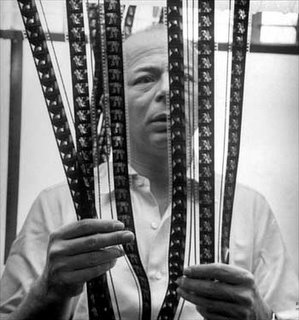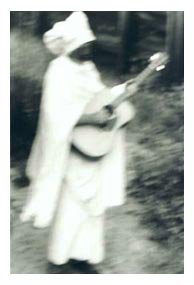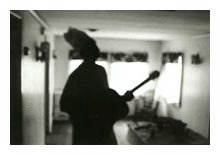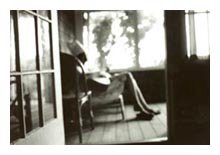Billy Wilder's Quotes
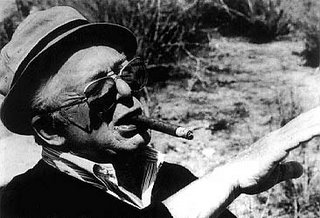
"Si hay algo que odie más que el que no me tomen en serio es que me tomen demasiado en serio."
"Quizás Sunset Boulevard es una película cínica, pero para mí esa película es Hollywood; el guionista, el agente, la estrella olvidada, todos eran retratos del natural."
"Lo único que me partiría el corazón sería que me quitaran la cámara y no me dejaran volver a hacer películas."
"He hecho películas que a mí me hubiera gustado ver. Y yo sólo quiero ver películas que me entretengan."
"Hay algo sorprendente: cuando reflexiono sobre todas mis películas, me llama la atención que, en las épocas en que estuve deprimido hice comedias. Y cuando me sentía feliz, rodé temas más bien trágicos. Quizás intente inconscientemente compensar cada uno de mis estados de ánimo."
"Normalmente, cuando te encuentras con una persona que parece insignificante y que no llama la atención se dice: detrás de esa fachada, hay más de lo que parece. En mi caso sucede lo contrario: detrás de mi apariencia hay menos de lo que parece."
"Para hacer una película hay una sóla regla: sólo hay que hacer aquello que sea de utilidad a la película."
"Un director tiene que ser policía, comadrona, psicoanalista, adulador y bastardo."
"La televisión es lo más maravilloso que podía habernos sucedido. Siempre hemos sido lo más bajo de lo bajo, pero ahora han inventado algo a lo que podemos mirar desde arriba."
"El exilio no fue idea mía, sino de Hitler."
"Si usted cree que tengo acento, debería haber conocido a Ernst Lubitsch (...) Pero tenía un oído estupendo para las expresiones y el argot americano y, como decía Van Gogh, o tienes oído o no lo tienes."
"Al público no hay que dárselo todo masticado, como si fuera tonto. A diferencia de otros directores que dicen que dos y dos son cuatro, Lubitsch dice dos y dos... y eso es todo. El público saca sus propias conclusiones."
"Una vez me preguntaron: ¿Es importante que un director sepa escribir?, y yo respondí: no, pero sí es útil que sepa leer."
"En mis películas no hay grande movimientos de cámara ni puntos de vista destinados a demostrar que soy un director de cine. [...] En Europa, un director puede tomarse todo el tiempo del mundo para crear una atmósfera, y meter un montón de escenas de nubes que se disuelven; pero el público de aquí, si les muestras las nubes por segunda vez, espera ver entre ellas un aeroplano."
"Me gustaría morir a los 104 años, completamente sano, asesinado por un marido que me acabara de pillar, in fraganti, con su joven esposa."
"No tengo tiempo para considerarme un inmortal del arte. Hago películas sólo para entretener a la gente y las hago tan honradamente como puedo."
"Sobre la impuntualidad de Marilyn debo decir que tengo una vieja tía en Viena que estaría en el plató cada mañana a las seis y sería capaz de recitar los diálogos incluso al revés. Pero, ¿quién querría verla?... Además, mientras esperamos a Marilyn Monroe todo el equipo, no perdemos totalmente el tiempo... Yo, sin ir más lejos, tuve la oportunidad de leer Guerra y Paz y Los miserables."
"Marilyn no necesita lecciones de interpretación; lo que necesita es ir al colegio Omega, en Suiza, donde dan cursos de puntualidad superior."
"Me han preguntado si volveré a trabajar con M. M, y tengo una respuesta clara. Lo he discutido con mi médico, mi psiquiatra y mi contable, y todos me han dicho que soy demasiado viejo y demasiado rico para someterme de nuevo a una prueba semejante."
"Marilyn era un absoluto genio como actriz cómica, con un sentido extraordinario para los diálogos cómicos. Tenía ese don. Nunca después he vuelto a encontrar una actriz así."
"Existen más libros sobre Marilyn Monroe que sobre la II Guerra Mundial. Hay una cierta semejanza entre las dos: era el infierno, pero valía la pena."
"El problema de Marilyn es que se enamoraba con mucha rapidez. No era la clase de mujer que se supone que debe ser un símbolo sexual, y eso la mató... Marilyn era una mezcla de pena, amor, soledad y confusión."
"Marilyn Monroe era de carne, y se fotografiaba de carne. Tenías la impresión de que bastaba con alargar la mano para poder tocarla."
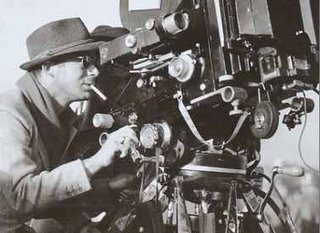
"Tengo diez mandamientos. Los nueve primeros dicen: ¡No debes aburrir!. El décimo dice: tienes que tener derecho al montaje final de la película."
"Es aburrido ver a alguien entrar en una casa por la puerta. Es mucho más interesante cuando alguien entra por la ventana."
"Los austríacos han conseguido el malabarismo de convertir a Beethoven en austríaco y a Hitler en alemán."
"Un húngaro es alguien que entra contigo en una puerta giratoria y sale antes que tú."
"Creen que la lentitud y la solemnidad son sinónimos de profundidad."
"Escribir un guión no es esperar a que llegue la musa y te bese en la frente; es un trabajo muy
duro. He hecho ambos trabajos, y sé que dirigir es un placer y escribir un guión es un rollo."
"Del mismo modo que todo el mundo odia a Estados Unidos, todo Estados Unidos odia a Hollywood. Existe el profundo prejuicio de que todos nosotros somos tipos superficiales que ganamos diez mil dólares a la semana y que no pagamos impuestos; que nos tiramos a todas las chicas; que tenemos profesores en casa que dan clases a nuestros hijos de cómo subirse a los árboles; que cada uno de nosotros tiene dieciséis criados y que todos conducimos un Maserati. Pues sí, todo esto es verdad. ¡Aunque os muráis de envidia!."
"Todos los días miro las esquelas de los periódicos y me fijo sobre todo en la edad del muerto. La mayoría son más jovenes que yo. Me asusto y pienso: a lo mejor, lo único que sucede es que se han olvidado de mí."
"Si el Cine consigue que un individuo olvide por dos segundos que ha aparcado mal el coche, no ha pagado la factura del gas o ha tenido una discusión con su jefe, entonces el Cine ha alcanzado su objetivo."
"He vivido la época en que se temió que el cine se viera desplazado por la novedad de la televisión. Pero no he compartido ese miedo porque sé que la radio y los discos no pueden destruir la ópera. La televisión no ha podido acabar con el cine porque la gente quiere estar allí, quieren ser los primeros, quieren oir las risas de otras personas."
"Las mujeres más interesantes en una película son las putas."
"Esas cosas horribles que son tan necesarias y que hacen a la gente millonaria -me refiero a los
efectos especiales- no las sé hacer, no sé rodar choques de coches... En esta época, por lo que respecta a los argumentos, creo que ya está todo inventado. Ahora se hacen remakes."
"Antonioni seguro que es un gran director, un gran artista. Pero en lo que a mí se refiere, soy incapaz de mantenerme despierto."
"Sobre Ingmar Bergman debo decir que los críticos no tienen ni idea de lo que está diciendo, pero, pese a todo, les chifla... Existe una asociación internacional de ese tipo de críticos, capaces de extasiarse ante el asno muerto de Cocteau envuelto con telas encima de un piano."
"Comprendo sin dificultad por qué Godard ha podido por sí sólo exterminar varias empresas productoras."
"Lo más importante es tener un buen guión. Los cineastas no son alquimistas. No se pueden convertir los excrementos de gallina en chocolate."
